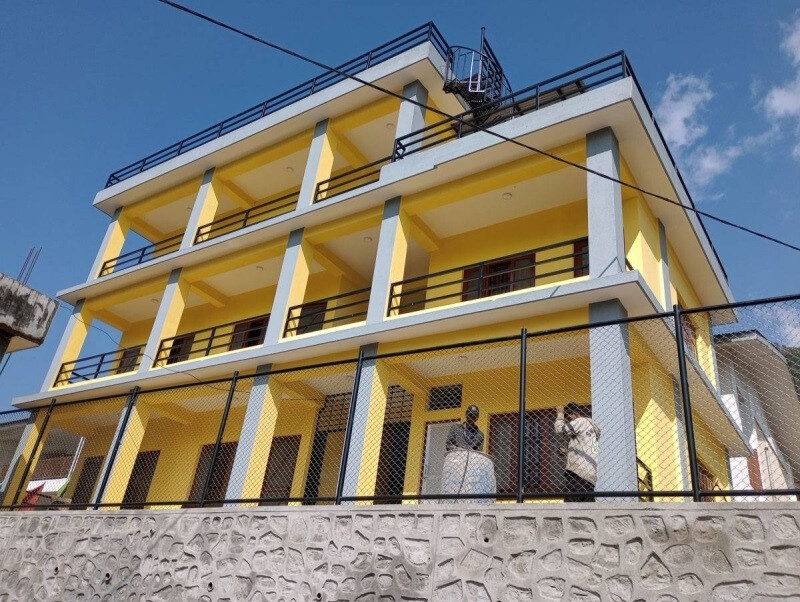
Lalitpur, Nepal – The Embassy of Japan has donated a newly constructed girls' dormitory to Shri Kali Devi Secondary School (SKDSS) in Lalitpur. Funded by Japan's Grant Assistance for Grassroots Projects (GGP), the project received approximately 20.5 million Nepalese rupees (US$156,881).
H.E. Mr. Yutaka Kikuta, Ambassador of Japan to Nepal, attended the inauguration ceremony and expressed his gratitude for the efforts of all involved in the project.
In his congratulatory remarks, Ambassador Kikuta thanked everyone who contributed to the project. He highlighted that previously, especially female students, had to walk long distances to school or rent rooms near the school, making it difficult for them to concentrate on their studies. The newly constructed girls' dormitory provides a more suitable and safe environment for students.
Ambassador Kikuta mentioned that the school building was reconstructed with Japanese support after the 2015 earthquake and that the establishment of the dormitory would further improve the students' learning and living environment. He also expressed hope that the local community, school, and families would be dedicated to the continued maintenance of the dormitory and that this project would provide opportunities for a better future for the children and the development of the community.
He further encouraged the students to grow into individuals who could work for Nepal's development and actively play a bridging role between Japan and Nepal in the future.
Established in 1962, SKDSS is a key educational institution for approximately 350 students from southwestern Lalitpur and neighboring Makawanpur districts.
The project was implemented by Love Green Nepal, an NGO that has been active since 1991 in the fields of education, environment, agriculture, women's empowerment, and community development. According to a press release from the Japanese Embassy, they believe this project will contribute to improving Nepal's educational environment and further strengthen the friendly relations between the people of Japan and Nepal.
GGP is designed to implement grassroots projects that directly benefit people at the grassroots level for socio-economic development of the community. The embassy added that since 1991, more than 200 GGP projects have been implemented in Nepal.
[Copyright (c) Global Economic Times. All Rights Reserved.]






























